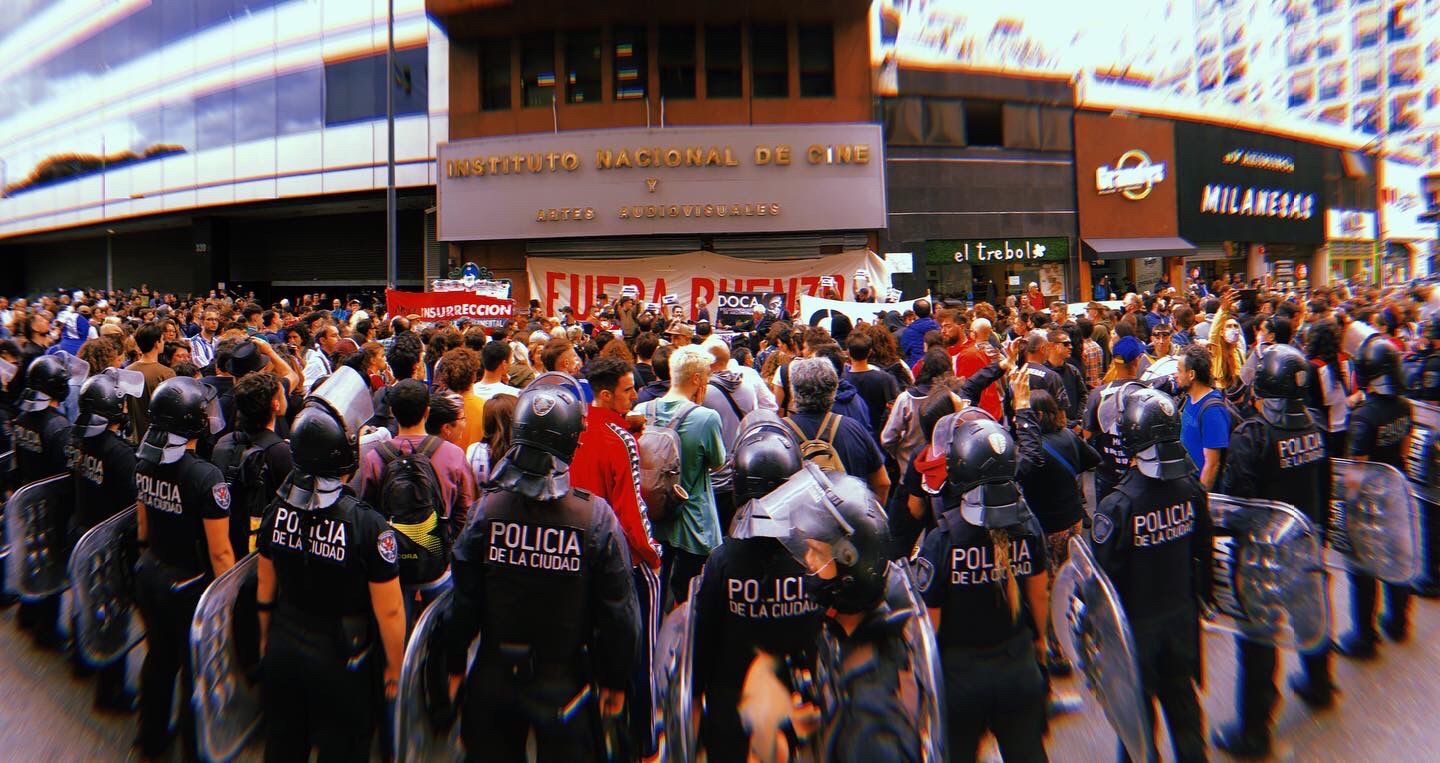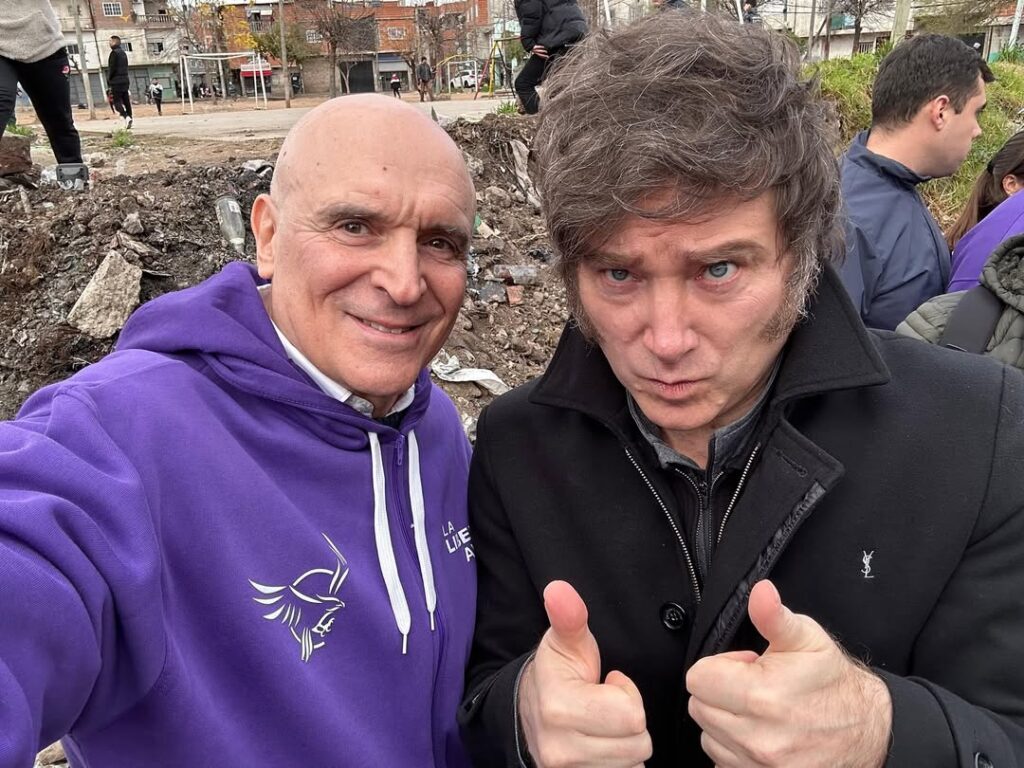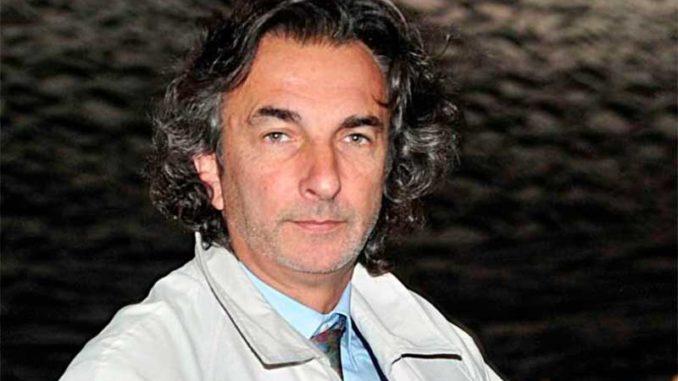Film producers, directors and actors go on strike, saying that a lack of resources provided by Argentina’s state funded film body would kill independent movie production in favor of private production houses like Netflix. The head of the film body was forced to resign.
On Sunday, April 10, an image that read “This management must end. They’re killing Argentine cinema” started circulating on the social media accounts of Argentine actors, actresses, film producers and directors. It alluded to the call being made by film industry employees to protest against certain measures taken by Luis Puenzo, the now-former president of Argentina’s National Institute of Cinema and Audiovisual Arts (INCAA).
It all started with two main issues: the leak of an alleged draft decree from Mr. Puenzo, considered “harmful” by film workers; and the setting of the December 31, 2022 expiration of the Film Development Fund, one of the main sources of funding for INCAA, which supports independent film production in Argentina. Last Wednesday, Mr. Puenzo was forced to resign by a decree from Argentina’s President Alberto Fernández because he refused to leave office.
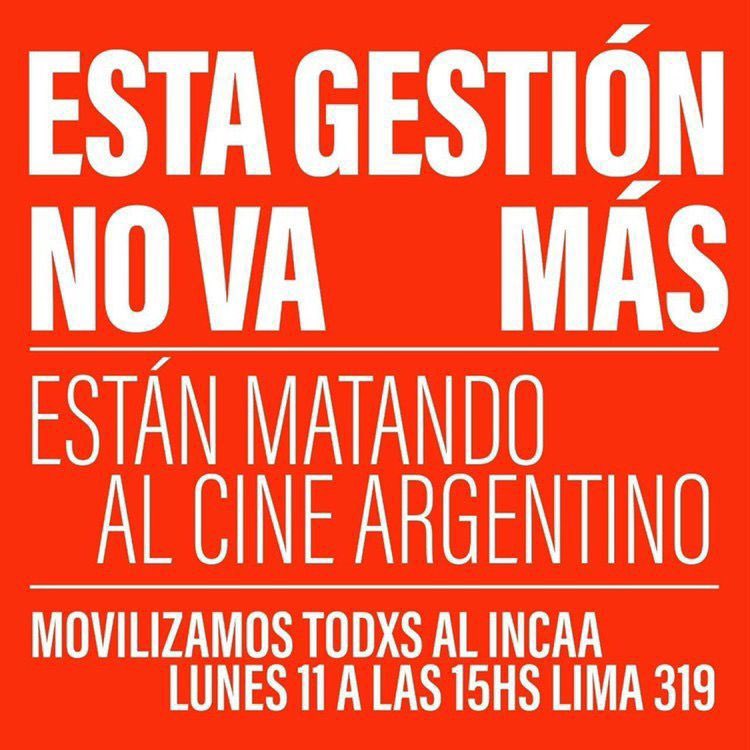
Argentina’s film industry has a long history of dependence on INCAA, an entity that is under the umbrella of the Ministry of Culture. Its main responsibility is to promote, foster, strengthen and regulate audiovisual production and this includes, among other things, subsidizing the making of films and their presentations at festivals.
Nowadays, making a medium budget film in Argentina costs around $96 million pesos (almost half a million US dollars). If INCAA considers a movie project “of interest,” the producers will be granted funding for a certain percentage of the production costs: 39% if it is an animated movie, 35% for fiction films and 26% for documentaries. Given the current economic strains in the country, big production houses, both national and international, are most likely to produce films in Argentina currently.
Paula Orlando and Pablo Aparo are film producers and members of the Colectivo de Cineastas (Filmmakers Collective), one of the main organizers of the protests against INCAA. “After 4 years of Macrismo [the center-right administration of former President Mauricio Macri] in which a systematic attempt was made to concentrate film production in the hands of the few large production companies, the bureaucratic obstacles, the lack of aid and the deficient policies of exhibition are maintained to this day,” the two producers told Argentina Reports.
The Film Development Fund (FFC), also known as the “Film Law” and sanctioned in 1994, is the main source of funding for INCAA. It’s generated through a 10% tax on the price of movie tickets, 10% of the sales of “recorded videograms” (VHS, DVDs, etc.) and 25% of the tax collected from the National Communications Entity (ENACOM).
In 2017, during the presidency of Mr. Macri, lawmakers decided to set an expiration date for funding for The Film Development Fund that was generated from movie tickets and the sale of videos, They landed on December of 2022. If no action is taken to reverse the decision to defund, independent filmmakers could see a significant source of their funding dry up by the end of this year.
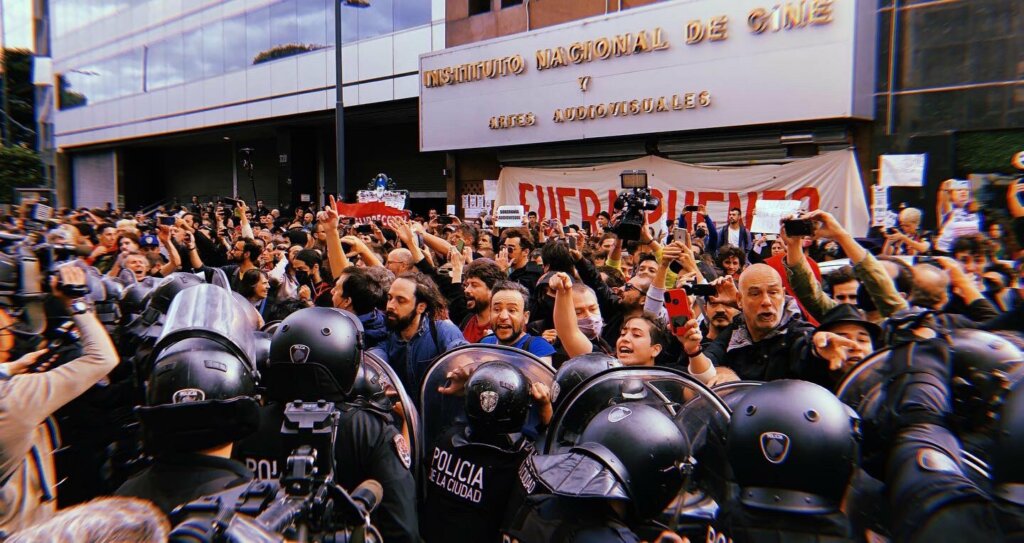
“What ends up triggering the call for Puenzo’s resignation is the leaking of a decree that establishes limits on the amount of funds that the INCAA provides to the projects approved for its production,” complained Paula and Pablo. “In this way, the only productions that can be made are those that have external financing, whether from important American majors, platforms or television channels, further concentrating the discourses and destroying artistic and cultural sovereignty.”
In the meantime, former Vice President of INCAA Nicolás Battle was named interim president of the institute by the Ministry of Culture.
The Filmmakers Collective, however, is more concerned with where the money will come from now.
“We say no to the expiration of the Film Development Fund. Let’s avoid the cultural blackout!” they said.


